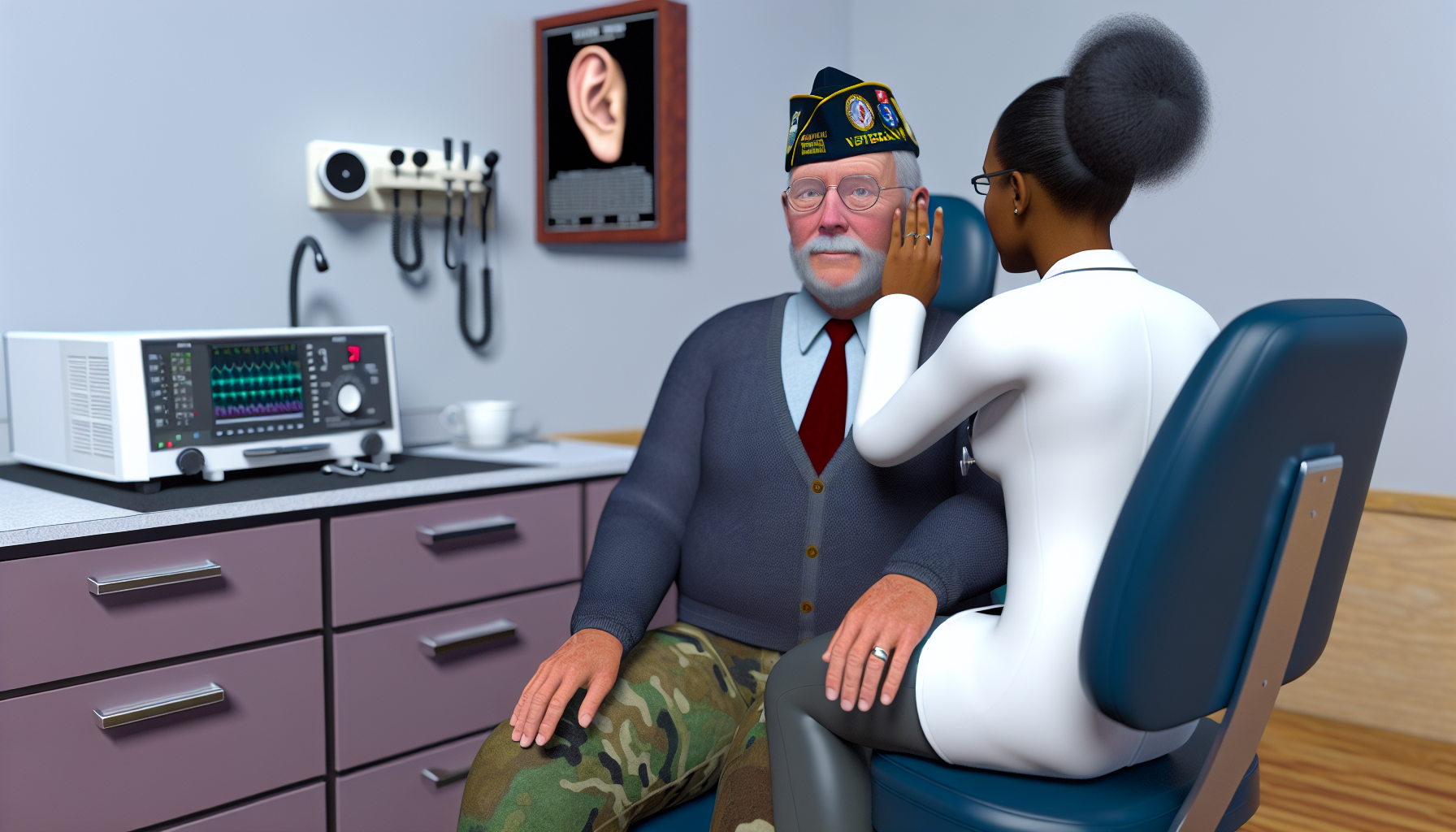In a groundbreaking study conducted by researchers at Oregon Health & Science University, a significant link has been discovered between hearing loss and the development of Parkinson’s disease (PD) in veterans. This research sheds new light on the potential risk factors for PD and emphasizes the importance of early hearing screening and intervention.
The Connection Between Hearing Loss and Parkinson’s Disease
The study’s findings reveal a compelling correlation between hearing impairment and the onset of Parkinson’s disease among veterans. Researchers observed that the risk of developing PD increased in tandem with the severity of hearing loss. This association was consistent across various levels of hearing impairment, from mild to severe.
Understanding the Study’s Scope and Methodology
To arrive at these conclusions, the research team analyzed an extensive dataset comprising over 3 million U.S. veterans who underwent audiograms between 1999 and 2022. The study employed a comprehensive approach, categorizing hearing loss into four distinct levels:
1. Mild
2. Moderate
3. Moderate to severe
4. Severe to profound
Key Findings on Incidence Rates
The results of the study were striking, demonstrating a clear correlation between the severity of hearing loss and the incidence of Parkinson’s disease:
– Veterans with mild hearing loss showed an additional 6.1 cases of PD per 10,000 individuals
– Those with moderate hearing loss exhibited 15.8 additional cases per 10,000
– Severe to profound hearing loss was associated with 12.1 extra cases per 10,000
These figures underscore the significant impact that hearing impairment can have on the risk of developing Parkinson’s disease.
The Protective Effect of Hearing Aids
One of the most encouraging aspects of the study was the observed impact of hearing aids on PD incidence. Veterans who were promptly fitted with hearing aids showed a notable reduction in the occurrence of Parkinson’s disease. Specifically, the research found a decrease of 21.6 cases per 10,000 individuals among those who received hearing aids.
This finding highlights the potential of hearing aids not just as tools for improving auditory function, but also as possible preventive measures against neurodegenerative diseases like Parkinson’s.
Implications for Healthcare and Patient Care
The study’s results have far-reaching implications for both healthcare providers and patients:
1. Hearing screening as a preventive measure: The findings suggest that hearing screening and intervention could be crucial modifiable risk factors in the development of Parkinson’s disease.
2. Primary care recommendations: Study authors advocate for enforcing hearing screening at the primary care level, even when patients do not express concerns about their hearing.
3. Early intervention: The research underscores the importance of early detection and treatment of hearing loss, potentially influencing the later development of neurodegenerative conditions.
4. Holistic approach to patient care: Healthcare providers may need to consider the broader implications of hearing loss beyond just auditory function.
Future Research Directions
While this study provides valuable insights, it also opens up new avenues for further research:
1. Mechanisms linking hearing loss and PD: There is a need to delve deeper into the potential biological mechanisms that connect hearing impairment to neurodegenerative diseases like Parkinson’s.
2. Long-term effects of hearing aids: Further studies could explore the long-term impact of hearing aid use on the development of PD and other neurological conditions.
3. Synucleinopathy and hearing loss: Research into how early intervention with hearing aids might influence the development of synucleinopathy, a hallmark of Parkinson’s disease, could provide valuable insights.
4. Broader population studies: While this study focused on veterans, expanding research to include diverse populations could offer more comprehensive insights.
Frequently Asked Questions
1. Does hearing loss directly cause Parkinson’s disease?
While the study shows a correlation between hearing loss and increased risk of Parkinson’s disease, it does not prove a direct causal relationship. More research is needed to understand the exact nature of this connection.
2. Can wearing hearing aids prevent Parkinson’s disease?
The study suggests that prompt use of hearing aids is associated with a reduced incidence of Parkinson’s disease in veterans with hearing loss. However, it’s important to note that hearing aids are not a guaranteed preventive measure against PD.
3. Should everyone get regular hearing screenings?
Based on the study’s findings, regular hearing screenings could be beneficial, especially for individuals at higher risk of hearing loss or neurological disorders. However, it’s best to consult with a healthcare provider for personalized advice.
4. Are veterans more susceptible to hearing loss and Parkinson’s disease?
Veterans may be at higher risk for hearing loss due to exposure to loud noises during service. This study specifically focused on veterans, but the findings may have broader implications for the general population.
5. What should I do if I suspect I have hearing loss?
If you suspect hearing loss, it’s important to consult with a healthcare professional or audiologist for a proper evaluation and potential intervention.
Conclusion
This groundbreaking study from Oregon Health & Science University provides compelling evidence of a link between hearing loss and increased risk of Parkinson’s disease in veterans. The research not only highlights the importance of early hearing screening and intervention but also opens up new possibilities for preventive care in neurodegenerative diseases.
As we move forward, these findings could potentially reshape our approach to hearing health and its role in overall neurological well-being. While more research is needed to fully understand the mechanisms at play, this study serves as a crucial step towards more comprehensive and preventive healthcare strategies.
By recognizing the potential far-reaching impacts of hearing loss, we can work towards better health outcomes and improved quality of life for individuals at risk of neurodegenerative diseases. As always, consulting with healthcare professionals for personalized advice and regular check-ups remains crucial in maintaining overall health and well-being.
Source: Medical Xpress – Hearing loss linked to increased Parkinson’s risk in veterans
